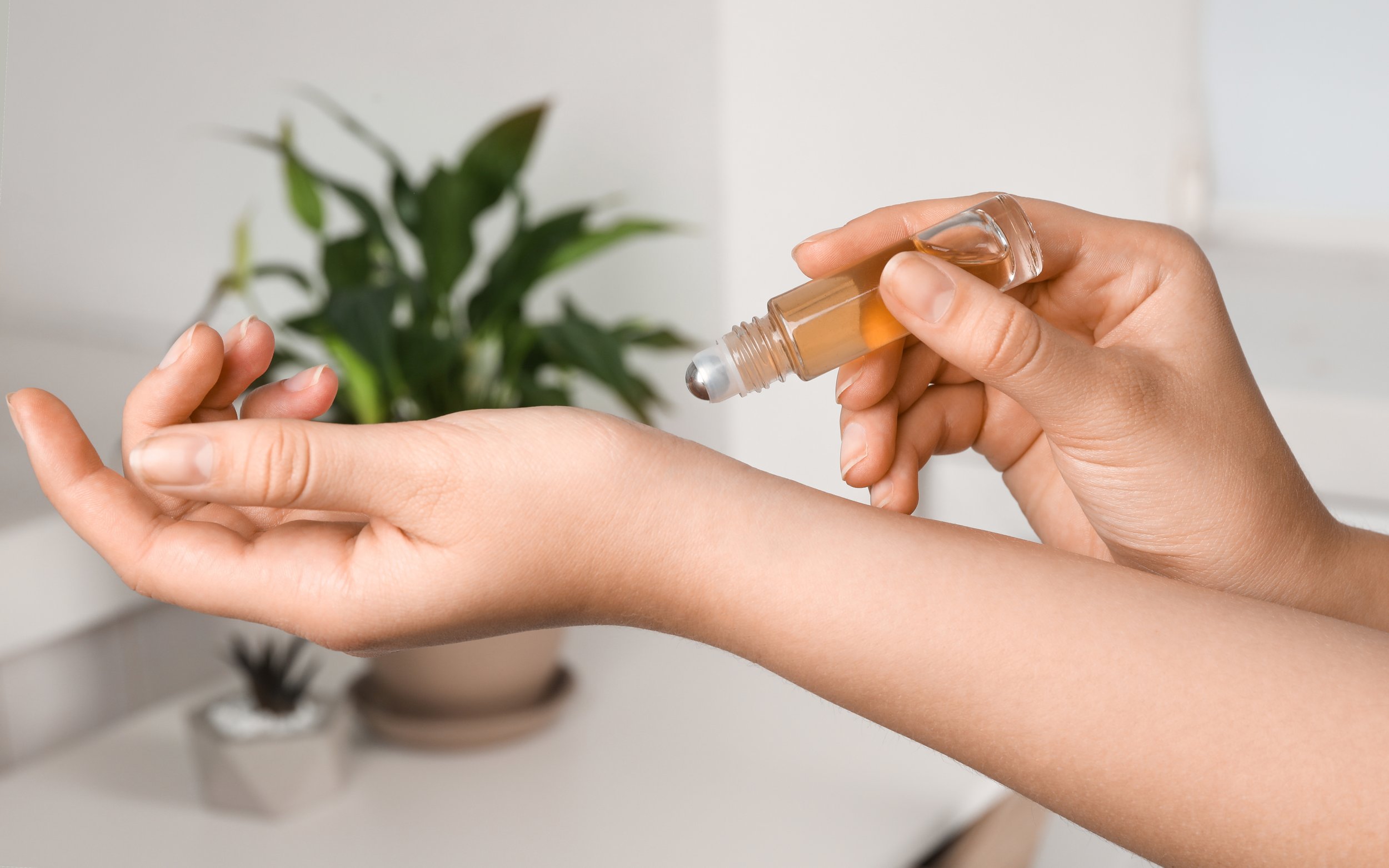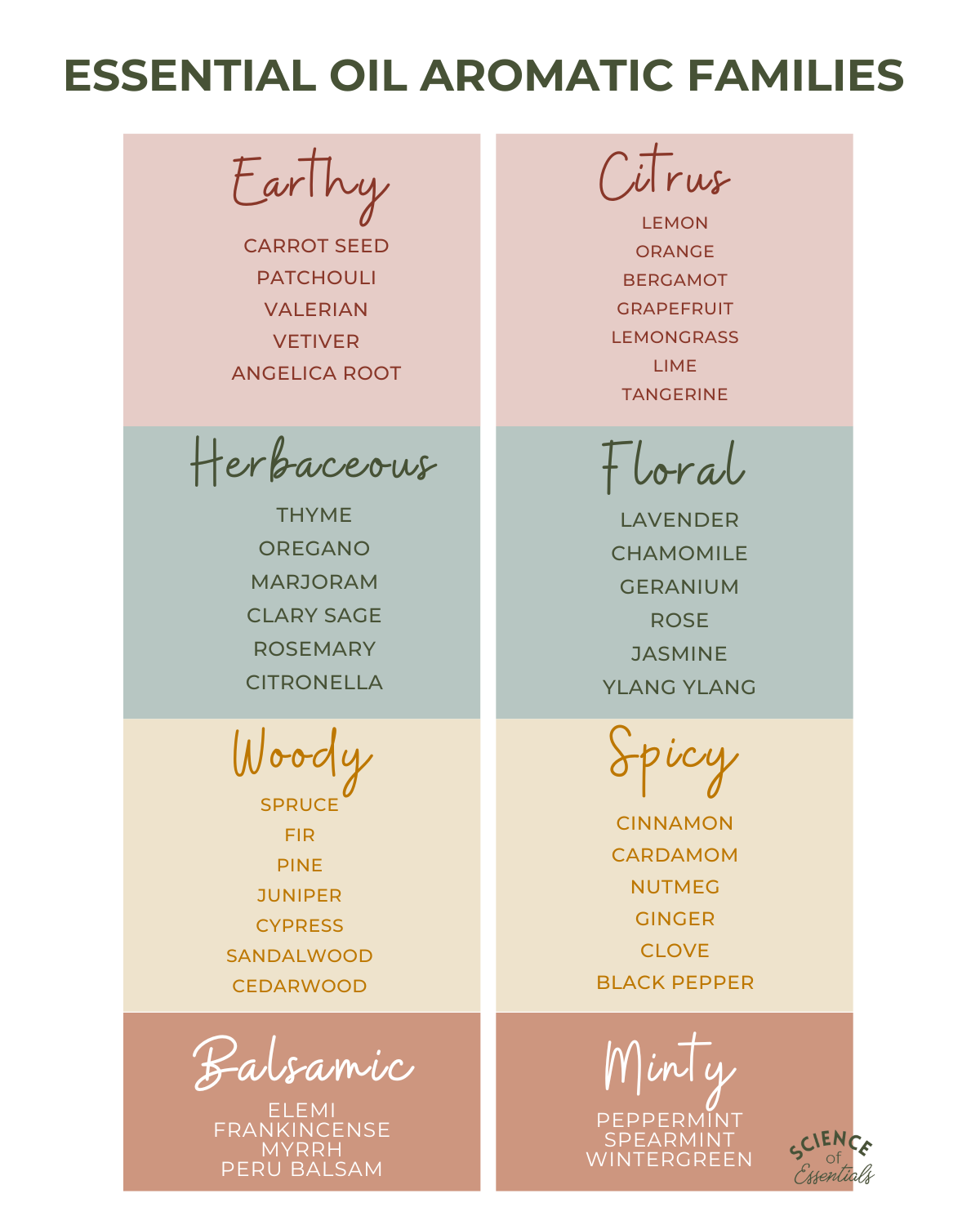5 Tips for Using Essential Oils for Stress Relief
Scent is POWERFUL!
Smell is the most underutilized sense we have yet one of the most powerful. It is our most primal sense. It stops us from drinking sour milk, alerts us to natural gas, and can even detect a fire 30 miles away. While other mammals, such as dogs and cats have a much keener sense of smell, the human sense is still extraordinary with the human genome being packed with over 950 odorant receptor genes. Not to mention it’s the only sense that taps directly into the part of the brain responsible for emotion and memory.
Stress relief is by far the strongest pillar of aromatherapy practice. Aromatherapy can be a very helpful technique to elicit a relaxation response. Due to the complex chemical constituents, essential oils can play a role in transforming unpleasant emotions, inducing relaxation and potentially reducing the damaging effects of stress on the mind and body. In addition, essential oils are incredibly complementary to other healthy stress relieving techniques such as meditation, yoga, bubble baths, etc.
“Most studies, as well as clinically applied experience, have indicated that various essential oils, such as lavender, lemon and bergamot can help to relieve stress, anxiety, depression and other mood disorders. Most notably, inhalation of essential oils can communicate signals to the olfactory system and stimulate the brain to exert neurotransmitters (e.g. serotonin and dopamine) thereby further regulating mood.” (1)
A few of my favorite studies showing how essential oils can reduce stress and impact mood:
A randomized crossover study with 42 females showed that salivary cortisol levels were reduced significantly after inhalation of bergamot essential oil. Also the high-frequency heart (a component of heart rate variability and indicator of parasympathetic nervous system function) also increased significantly. (2)
A small pilot study of 57 participants found that diffusing bergamot in a waiting room increased positive feelings and moods. (3)
A randomized single blind control study found that inhalation of a lavender and ylang ylang blend significantly reduced stress, sympathetic nervous system activity, lowered blood pressure and reduced serum cortisol levels. (4)
A placebo controlled study found that dermal application of sweet orange essential oil reduced arousal of the autonomic nervous system (reduction of heart rate and respiratory rate) yet increased cheerfulness and uplifting moods. (5)
A meta-analysis of 32 clinical trials suggested that aromatherapy with different essential oils could alleviate anxiety. (6)
5 Tips for Using Aromatherapy for Stress Relief
1) Find your aroma preferences
Essential oils are most helpful for stress when you have a positive emotional reaction to an aroma. There are certain essential oils that are emphasized for emotional and stress support based upon their chemical constituents, however, any aroma that is considered pleasant to you can be helpful in initiating a relaxation response.
How do I do this?
Pay attention throughout your day on how aromas impact you. Both positively and negatively. Intentionally seek out those aromatics that make you feel good. Maybe it is the scent of terpenes being released from conifer trees outside, or fresh baked cookies, or your favorite shampoo or bubble bath. When struggling emotionally, seek out those aromas, inhale and notice how they change your mood.
With regards to aromatherapy, many people are drawn to certain aroma categories. When smelling an essential oil or an essential oil synergy, analyze the aroma and assess what you like and don’t like about it. Is there an aroma category you tend to favor more than the others?
A few examples of aroma categories:
2) Use essential oils in stress relieving activities.
Start using those essential oils you find most pleasant with stress relieving activities such as a bath, during yoga, meditation, in massage or in a diffuser when unwinding after a long day. Due to the anatomy of the olfactory system and its direct connection with the limbic system, your brain will begin to form memory scent associations of those essential oils and relaxation. This is also known as odor conditioning.
Studies have found that odors can transform emotions through association and then act as proxies for emotions, influencing how we feel later on. (7)
-Dr. Rachel Herz, a well-known Cognitive Neuroscientist.
3) Practice Deep Breathing
During periods of stress and other negative emotions, take a moment and reach for those essential oils you gravitate towards and have previously formed memory scent associations with. Open the bottle and smell it. Breathe slowly and deeply, inhaling those amazing aromas through your nose, exhaling through your mouth and releasing any tension held within the body. Multiple studies have shown essential oils can induce a relaxation response due to their complex chemical constituents. Pay attention to how your mind and body respond shortly after.
4) Focus on the stress itself and not just the symptom.
Due to the mind body connection, we tend to physically store and hold stress in various ways within our body. For example: headaches, neck and shoulder tension, back pain, sleep disturbances, skin flareups, mental fatigue, and changes in bowels. When struggling with a physical manifestation of stress, it is not only helpful to support that physical manifestation but also the stress itself. For example, rolling on peppermint to soothe head tension, but also applying or inhaling lavender or another calming, stress reducing essential oil during periods of stress.
5) Be consistent
Begin forming a healthy coping strategy using essential oils even when not currently stressed. Instead of only reaching for essential oils as a reaction to stress, begin to use them proactively before you encounter your stressors. When we use aromatherapy consistently, we begin to feel more comfortable being calm and grounded and thus we are less likely to become triggered when a stressor occurs.
Feeling stressed? Here are few ways essential oils can help:
Calm emotional state by decreasing sympathetic nervous system activity
Promote sleep
Ease tension
Enhance energy levels
Encourage health coping skills
Allow us to feel grounded in the present moment
Promote positive thinking
Enhance memory and focus
Want to learn more about using aromatherapy for stress relief? Here are my 3 stress less ways to start the day and learn about how to enhance meditation with essential oils.
Disclaimer: This blog is for general informational purposes only and does not constitute the practice of medicine, nursing or other professional health care services, including the giving of medical advice. The use of information on this blog or materials linked from this blog is at the user's own risk. The content of this blog is not intended to be a substitute for professional medical advice, diagnosis, or treatment. Users should not disregard, or delay in obtaining, medical advice for any medical condition they may have, and should seek the assistance of their health care professionals for any such conditions.
References:
Lv XN, Liu ZJ, Zhang HJ, Tzeng CM. Aromatherapy and the central nerve system (CNS): therapeutic mechanism and its associated genes. Curr Drug Targets. 2013 Jul;14(8):872-9.
Watanabe E, Kuchta K, Kimura M, Rauwald HW, Kamei T, Imanishi J. Effects of bergamot ( Citrus bergamia (Risso) Wright & Arn.) essential oil aromatherapy on mood states, parasympathetic nervous system activity, and salivary cortisol levels in 41 healthy females. Forsch Komplementmed. 2015;22(1):43-9.
Han X, Gibson J, Eggett DL, Parker TL. Bergamot (Citrus bergamia) Essential Oil Inhalation Improves Positive Feelings in the Waiting Room of a Mental Health Treatment Center: A Pilot Study. Phytother Res. 2017 May;31(5):812-816. doi: 10.1002/ptr.5806. Epub 2017 Mar 24.
Hwang JH. [The effects of the inhalation method using essential oils on blood pressure and stress responses of clients with essential hypertension]. Taehan Kanho Hakhoe Chi. 2006 Dec;36(7):1123-34.
Hongratanaworakit, Tapanee & Buchbauer, Gerhard. (2007). Autonomic and emotional responses after transdermal absorption of sweet orange oil in humans: Placebo controlled trial. International Journal of Essential Oil Therapeutics. 1. 29-34.
Gong M, Dong H, Tang Y, Huang W, Lu F. Effects of aromatherapy on anxiety: A meta-analysis of randomized controlled trials. J Affect Disord. 2020 Sep 1;274:1028-1040.
Herz, Rachel. The Scent of Desire. (2007). Harper Collins Publishers: New York.




